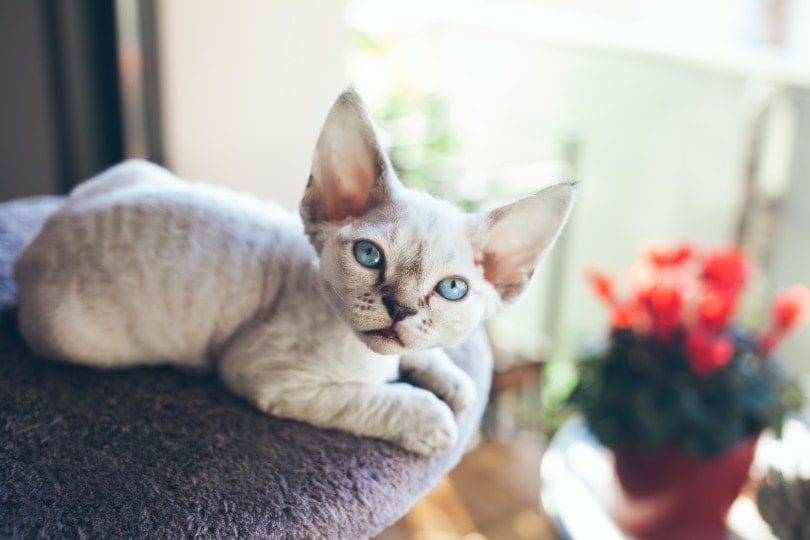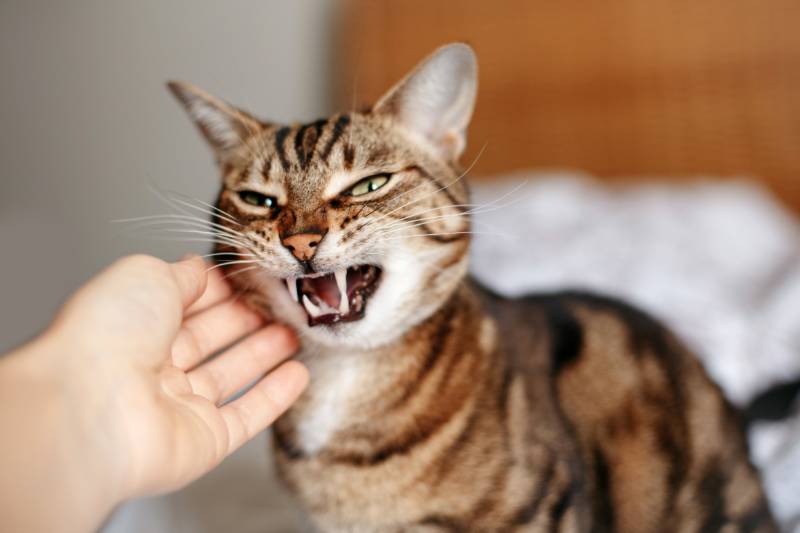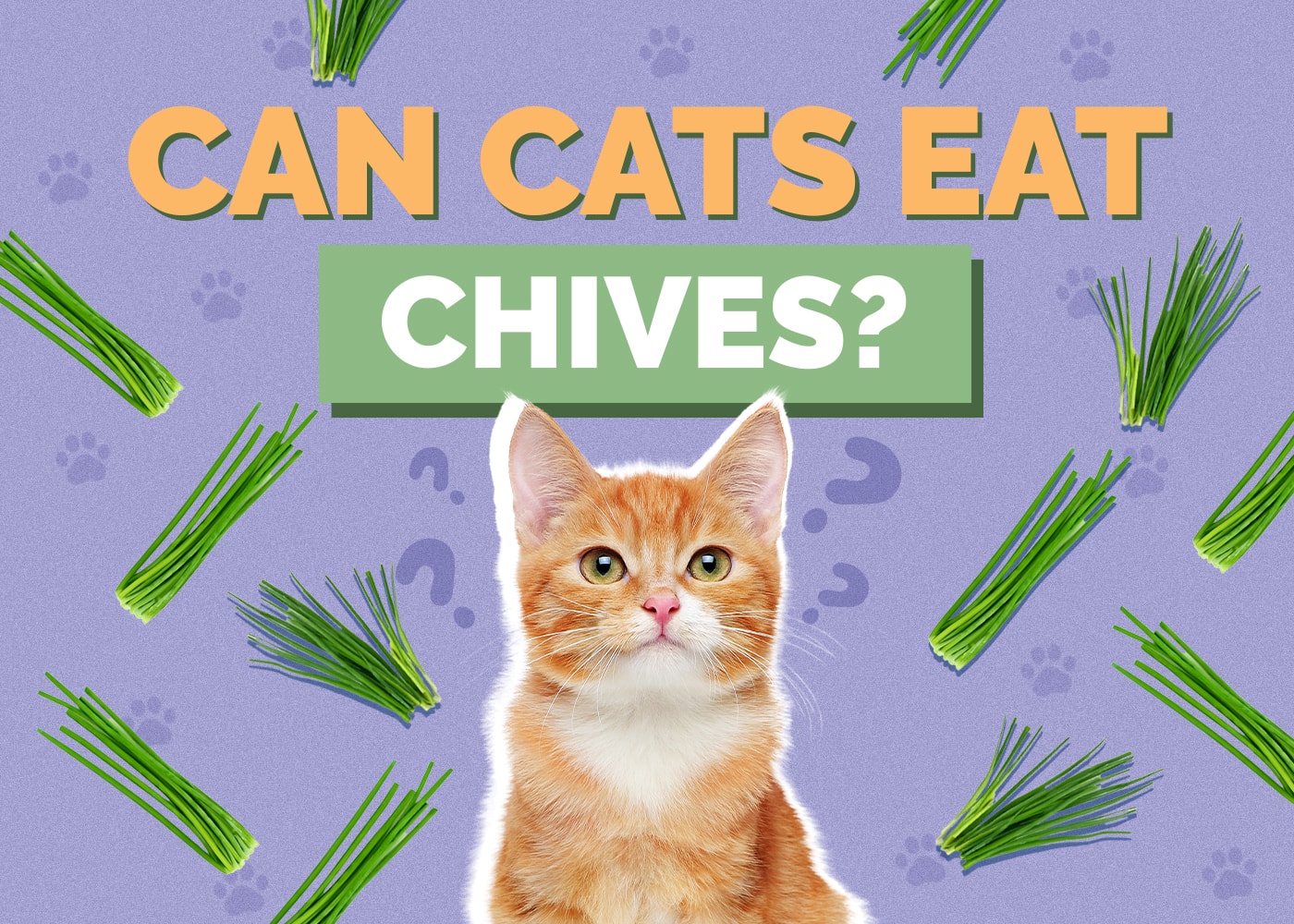Why Is My Cat Panting After Giving Birth? 5 Vet-Reviewed Possible Reasons
Updated on
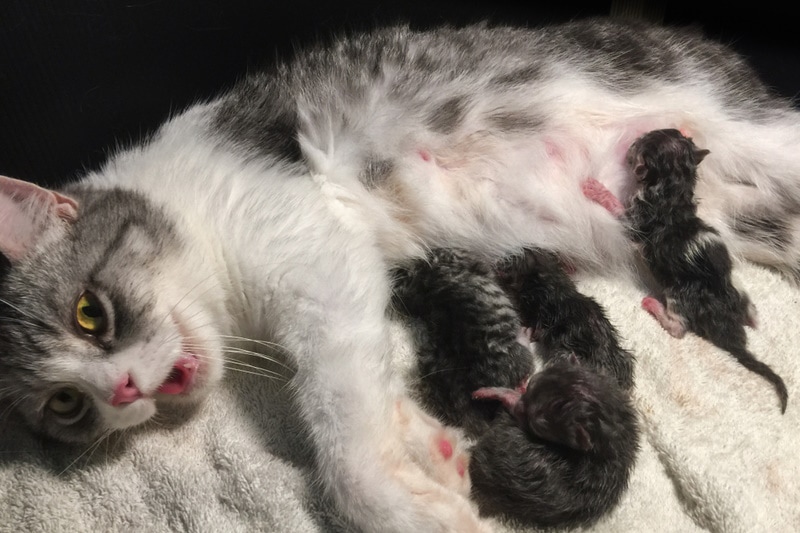
So, your cat is expecting? Congratulations! Welcoming a handful of kittens into your home is a beautiful experience, but it can also be stressful for you and the new mom. Your kitty’s personality and behaviors may change as she adapts to her new life caring for her babies. Therefore, it can be difficult to know if everything is okay with your kitty postpartum if she starts exhibiting different behaviors.
One thing she will probably start doing during the labor process and continue doing postpartum is panting. Is it normal? Should you be worried? Cats, like humans, can experience postpartum complications, so it’s completely valid to wonder if your new mommy cat’s behavior is normal.
Panting can be normal, but it can be a sign of postpartum complications. Keep reading to learn everything you need to know as the owner of a recently pregnant mama cat.
Is Panting Normal for New Moms Post-Birth?
Many new mother cats will pant after birth, and it can be completely normal behavior. She is likely to be exhausted; after all, she’s just given birth to a litter of kittens.
But if other abnormal behaviors accompany your mother cat’s panting, it may be time to visit the vet. Even if everything ends up being fine, it’s always best to get the advice of a professional, especially after such a grueling and painful process like giving birth. Many complications can occur before, during, and after birthing her litter, so the sooner you seek out advice, the better.
The 5 Possible Reasons Why A Cat Pants After Giving Birth
1. Eclampsia
Eclampsia, also sometimes called milk fever or lactation tetany, can happen several weeks after birth. It occurs when the mother experiences a life-threatening drop in her blood calcium levels due to nursing her kittens. It most often occurs one to four weeks after birth, when the mother produces the most milk. Mothers who are especially attentive to their kittens are at higher risk of developing this condition. Fortunately, it is pretty uncommon, but it’s still important for you to recognize the signs.
- Restlessness
- Panting
- Stiff movements
- Inability to walk
- Muscle spasms
- Convulsions
- Disorientation
- Aggressiveness
- Fever
Eclampsia is a medical emergency and requires immediate veterinary care. Treatment for this condition typically involves intravenous injections of calcium and other medication.
2. Anxiety and Stress
Giving birth and suddenly being at the beck and call of a handful of kittens is a stressful time for new mama cats. Like cats, cats may begin panting if they’re feeling anxious or stressed out. In normal situations, you could remove your cat from the stressful or anxiety-inducing situation, and the panting would subside. But unfortunately, you can’t do that when the kittens rely on their mom for sustenance.
Too much stress and anxiety can also cause the mother cat to become aggressive and care for her kittens properly. She may become unable to lactate as she needs to, which can cause health issues in the kittens.
If you think your mama cat is panting out of stress or anxiety, you must do what you can to calm her down. Try to provide a relaxing environment and remove any stressors. Give her space, but check on her often to ensure she and the kittens are doing okay. If eliminating the stressors and providing a calming environment isn’t helping with her panting, it’s time to call a vet.
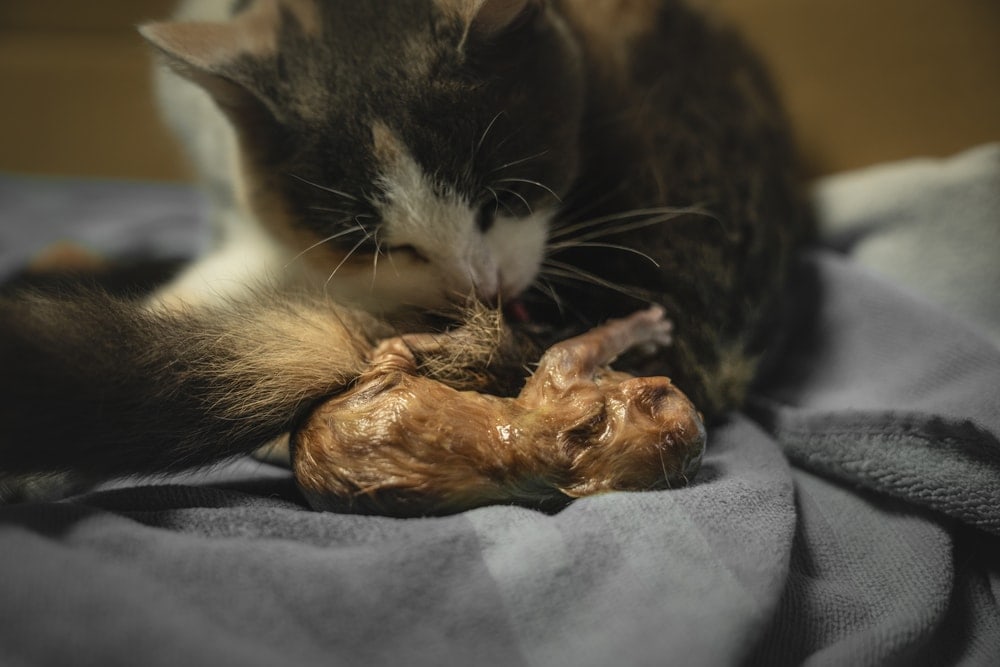
3. Postpartum Healing
Panting can be a normal part of the postpartum healing process. When your cat is pregnant, her uterus expands to make room for the kittens. After giving birth, it will need to return to its normal size. If you have given birth, you probably remember the postpartum cramps from your uterus contracting after delivering your child. Your cat will go through a similar process, so she may be panting because she’s cramping due to her uterus shrinking to its normal size.
4. Overheating
Cats will often pant if they’re overheating. If you think your mama cat is panting because she’s too warm, you need to do what you can to make the room a more reasonable temperature. If she’s overheated, she might go somewhere else to cool down, and she may even bring her kittens along with her.
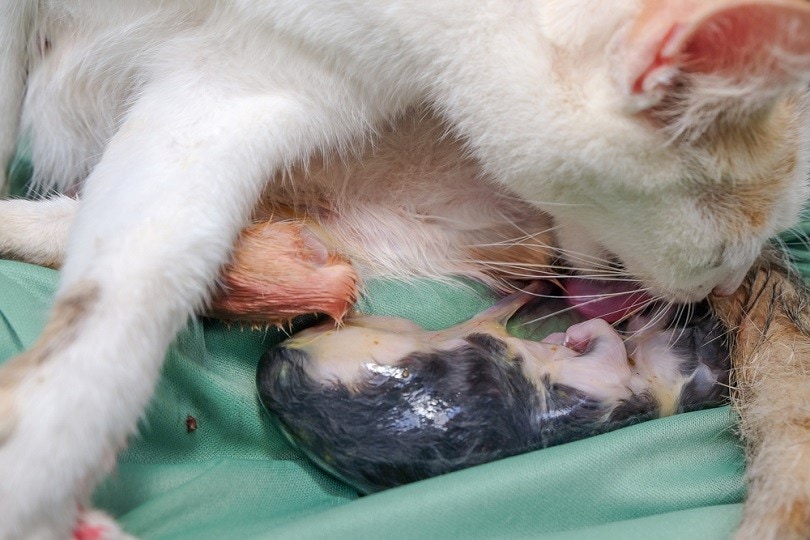
5. More Kittens Are Coming
It usually takes four to 16 hours for all the kittens to be born, but it can take even longer. According to PetMD, it can even take up to three days! If your mother cat has just freshly given birth, she may be panting because more kittens are on the way.
If she starts pushing again and no kitten comes out after an hour of her actively pushing, a problem is likely afoot. This is the time to call your vet for advice.
When to Call the Vet
It’s hard to know whether your cat’s panting warrants a visit to the vet, as it can be a normal side effect of giving birth. However, panting can also be a warning sign that complications are afoot. Keep an eye on the new mom for other signs of illness, such as:
- Unusual vaginal discharge
- Prolapse of the uterus
- Poor appetite
- Excessive thirst
- Vomiting
- Awkward movements
- Collapsing
- Swollen abdomen
- Dehydration
- Fever
- Reduced milk production
- Increased heart rate
Summary
Panting postpartum is normal sometimes, but it can also signify complications. If you see your mama cat panting after giving birth, watch her closely for other signs of illness. We also recommend calling your veterinarian for advice if you’re worried or if you notice your cat not giving attention to her kittens as she should be.
Featured Image Credit: iarecottonstudio, Shutterstock



